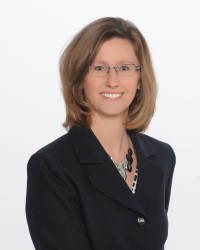Karla Twedt-Ball, SVP Programs & Community Investment
Greater Cedar Rapids Community Foundation
Editor’s note: This post is excerpted from a Guest Editorial in The Gazette on June 2, 2018. Karla Twedt-Ball has led disaster preparedness initiatives at the Greater Cedar Rapids Community Foundation since the 2008 flood.
As we [Linn County and specifically, Cedar Rapids] approach the 10 year anniversary of the 2008 flood, we reflect on what we have learned about disaster preparedness and emergency response over the past decade.
First, and foremost, we have learned there are critical components to effective disaster response. We know that many of our community’s nonprofit organizations serve as much-needed immediate responders. Providing them with access to the funding and support they need to stay operational is essential. These nonprofits ensure our neighbors, and especially vulnerable populations, are clothed, sheltered and fed when the unthinkable happens.
We have also learned that it is crucial for all communities in the county have a plan, be connected, and be aware of coordinated efforts. In Linn County, Linn Area Partners in Disaster (LAP-AID), a coalition of organizations that seeks to increase resilience and minimize the impact of emergencies and disasters, facilitates preparedness and response.
Nonprofit organizations and disaster networks are also significant during small-scale disasters — low attention events that have a substantial impact on individuals and businesses, but are not declared disasters and therefore do not receive government aid.
When disaster strikes, no matter the size or scale, communities need to act fast. We know it is essential for emergency services and community resources to be able to address the needs of citizens immediately following a disaster, but what is less known is that the ability to raise funds to recover financially is also time sensitive. Research by the Center for Disaster Philanthropy demonstrates that most charitable donations following a disaster are made within the first few days. Communities that have developed a fundraising plan in advance of a disaster have an advantage over those that have not.
The Connect Community Foundations Conference will feature a panel discussion on this topic with Karla and other members of the PREPP (Prepardness, Resiliency, Emergency Partnership) Cohort as well as Nancy Beers, Director, Midwest Recovery Fund from the Center for Disaster Philanthropy.
To access the editorial in its entirety, click here.

